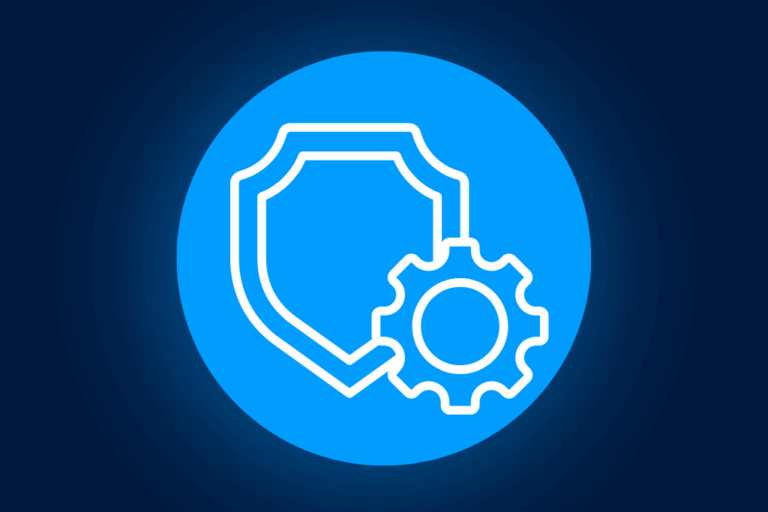The legal profession has undergone great shifts in the last ten years. Now, with the rise of artificial intelligence, automation, and digital transformation a lot of activities have bee redefined. Legal professionals operate differently, this goes too for in-house legal teams and extends beyond general legal practice.Tools like ChatGPT and AI-driven legal technology are reshaping the industry, streamlining processes, and enhancing decision-making.
As technology evolves, so too does the role of in-house legal teams. No longer confined to compliance and risk mitigation, they are becoming strategic advisors, deeply embedded in corporate decision-making. But what does the future in-house legal team look like? What skills, tools, and expertise will define this new era of legal professionals?
What Has Changed?
As it often happens, the role of in-house counsel has expanded due to a combination of external pressures and internal expectations. One of the common reasons cited is that legal teams are expected to do more, in less time and often with tight budgets. Although the legal field is known for its particular resistance to change, several factors have driven an evolution that can no longer be avoided:
1. Technology and Privacy Laws
Legal teams are now responsible for navigating an increasingly complex regulatory landscape. Not only are they expected to comply to regional privacy laws but, also to keep track of privacy changes abroad. This is particularly true for international companies. With dataprivacy laws such as GDPR, CCPA or the AI Act setting new standards, in-house lawyers must stay ahead of compliance requirements while leveraging AI-driven tools to streamline operations.
2. Innovation Reshaping Legal Operations
Startups and LegalTech companies are revolutionizing how contracts, compliance, and litigation are managed. With the rise of alternative legal service providers (ALSPs), traditional legal models are being disrupted, pushing in-house teams to rethink their workflows. However, adopting these new tools comes with challenges. Many essential technologies, like AI, are subject to regulations, adding another layer of responsibility for legal teams already managing complex compliance requirements.
3. Globalisation of Trade and Information Exchange
Cross-border transactions and international regulations have made legal oversight more intricate. The future in-house legal team will need to master digital collaboration tools to work efficiently across jurisdictions. Mastering digital tools, data analysis software and other new technologies will become necessary. This is where tech literacy to put it that way (meaning all new technologies) must be a priority for legal professionals leading teams.
4. Corporate Ethics Under Scrutiny
High-profile corporate failures have placed legal teams at the heart of corporate governance and ethics enforcement. Companies are now prioritising transparency and compliance, increasing the responsibilities of in-house counsel. Today, CSR and ethics are more than just regulatory requirements—they are fundamental to business sustainability. Poor practices and scandals can lead to economic, reputational, and legal consequences. Moreover, the public’s growing demand for responsible businesses further reinforces the need for ethical corporate behavior.
5.Governance and Compliance as Key Challenges
Boards of directors expect legal teams to proactively manage risk, ensuring compliance with regulations while also advising on ethical considerations. In 2024, data breaches amounted to a total of 4.88 million dollars in damages, increasing by 10% compared to 2023. This shift has made legal professionals indispensable strategic advisors.
The Expanding Scope of Legal Teams
The future in-house legal team will not only handle traditional legal matters but will also be deeply involved in other business functions. Let us stress “business” functions, as indeed legal departments are seen more and more as strategic players within a company. Legal departments are now expected to oversee a broad range of areas, including:
Cybersecurity and Data Privacy
Cybersecurity and data privacy have become top priorities for in-house legal teams. This makes sense as we see that more and more businesses are becoming more reliant on digital infrastructure and tools. The most common fear may be data breaches, as they cause financial penalties, reputation damages and loss of consumer trust. Legal teams must work closely with IT teams to:
- Ensure adherence to global data protection regulations such as GDPR, CCPA, and emerging AI-driven policies.
- Draft and enforce cybersecurity policies that govern how sensitive data is collected, stored, and shared.
- Mitigate legal risks associated with cyber incidents by preparing robust incident response strategies and ensuring breach notification procedures align with regulatory requirements.
- Advise on vendor and third-party cybersecurity contracts to hold partners accountable for data protection standards.
Corporate Social Responsibility (CSR)
Corporate Social Responsibility has become a core role for the modern legal professional. In fact, it has grown to be a position in its own as nowadays big corporations and medium sized businesses seek for CSR Managers. The evolution of this roles is only natural – With growing regulatory scrutiny and consumer demand for ethical business practices, CSR has moved from being a marketing tool to a legal and compliance concern. In-house counsel now play a key role in:
- Developing ESG (Environmental, Social, and Governance) policies that align with corporate objectives and regulatory expectations.
- Ensuring compliance with human rights and environmental laws, particularly in supply chain operations.
- Advising on sustainable business practices, such as reducing carbon footprints and ethical sourcing of materials.
- Managing legal risks associated with corporate activism, ensuring that public commitments align with actual business practices to avoid greenwashing claims.
Brand and Organisational Reputation
The future in-house legal team is no longer only concerned with legal disputes but also with managing brand reputation. Because we live in an era of instant communication, any crisis whether minor or not, can escalate quickly. Legal teams must also collaborate closely with communication teams, public relations and risk management professionals to:
- Identify and mitigate reputational risks before they become public issues.
- Develop crisis communication strategies that align with legal risk assessments.
- Ensure compliance with advertising and consumer protection laws to avoid misleading claims that could damage the brand.
- Monitor legal trends in social media and digital marketing, advising on intellectual property protection and data usage policies in advertising.
Business Advisory Functions
In-house legal teams are evolving beyond traditional compliance roles to become key strategic advisors. Their ability to provide legal insights within a business context makes them indispensable in decision-making processes. This means:
- Proactively identifying business opportunities and risks, ensuring that legal considerations shape corporate strategy rather than react to it.
- Collaborating with cross-functional teams to drive innovation while maintaining regulatory compliance.
- Utilising legal analytics and AI-driven insights to predict risks and optimise business operations.
- Providing guidance on mergers, acquisitions, and corporate restructuring, ensuring that transactions align with legal and strategic objectives.
These evolving responsibilities position legal teams as central figures in corporate strategy, requiring them to adapt to a multi-disciplinary approach.
Leveraging Tools to Stay Future-Ready
To thrive in this new environment, in-house legal teams must invest in technology that enhances efficiency and strategic decision-making. While tools like matter management, contract management, and board management are not new, their evolving features are making them indispensable.
Matter Management
Modern matter management solutions integrate AI and automation, allowing legal teams to track cases, organise documents, and manage deadlines seamlessly. Among the top features to look for, in-house legal teams must count with centralized data management, task automation and advanced reporting capabilities.
Contract Management
Contract lifecycle management tools (CLM), thus not totally new, are revolutionizing how legal teams handle agreements. In the recent years we have seen a surge in AI-powered capabilities, allowing legal teams to identify contractual risks rapidly and generate efficient summaries. Smart clause libraries on another hand have improved drafting time and consistency through pre-approved templates.
Board Management
As legal teams take on a greater governance role, board management solutions have become essential. They are also becoming more and more responsible of keeping sensitive documentation sage. This explains why robust board management solutions offer secure document sharing, e-signatures and integrated compliance monitoring.
What’s Next for the Future In-house Legal Team
The future in-house legal team is no longer a reactive function focused solely on compliance—it is a strategic unit driving corporate success. By balancing technology with human expertise, legal professionals can enhance their roles as advisors while ensuring organisations remain compliant, agile, and competitive.
As AI and automation continue to reshape the legal landscape, those who embrace innovation won’t just keep up—they’ll lead the way. The in-house teams of tomorrow will be tech-savvy, forward-thinking, and indispensable advisors, ensuring their organizations stay compliant, agile, and ahead of the curve.
Curious about how DiliTrust can help? Learn more about our solutions today.


